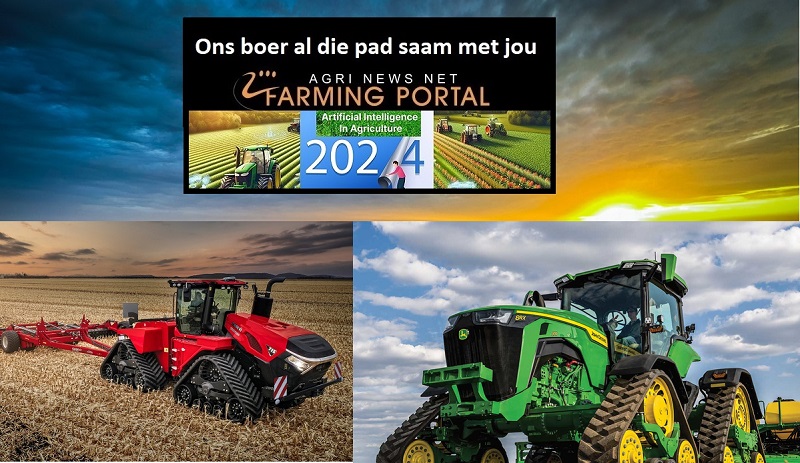Meeting rising food demands will require urgent collaboration between governments, the agriculture industry, the corporate sector and researchers to enhance global food security and protect the environment.
Agritech innovations, such as precision farming, effective crop protection, biotechnology, resilient crops and regenerative farming practices like cover crops, are essential, offering solutions that can increase crop yields, reduce environmental impact and adapt to changing climate conditions. Global Food Security, a UK cross-government programme on food security research, reports that around 795mn people face hunger on a daily basis globally, while two billion lack vital micronutrients. It estimates more food must be produced in the next 35 years than has ever been produced in human history.
“If we don’t meet the growing demand of a growing global population, we will all suffer food price inflation,” says Matthias Berninger, Executive Vice President Public Affairs, Sustainability and Safety at Bayer, who previously represented the Green Party in the German Federal Parliament. “The way we farm, what we consume and what we produce is significantly contributing towards biodiversity loss as well as climate change. We need to transform agriculture, and we are right on the way. Many recent Nobel Laureates have been recognized for their contributions to the biorevolution – the most recent in this series are John Jumper, Demis Hassabis and David Bakerden, who have been awarded with the Nobel Prize for chemistry. Their work will help to improve understanding of the significant transformation at the intersection of AI, biology, and chemistry.”

To foster economic resilience, the agriculture industry must adopt a regenerative agritech approach to its processes and methods. However, the industry can’t do this on its own: it needs support from private financing, NGOs and government. In March this year, the European Commission proposed a series of targeted actions to boost biotechnology and biomanufacturing in the EU, to help modernise its agriculture, forestry, energy, food and feed sectors and industry.
The European Commission’s proposals signalled a significant policy shift. Berninger’s cross-sector experience has taught him that the key to driving this kind of change is what he calls uncommon collaboration: “This is the magic formula in sustainability.”
Collaborative agritech solutions: paving the way to sustainable global food security
Uncommon collaboration brings together the best minds across different fields. In agriculture, that might be organic farmers, leaders in gene editing and digital transformation experts who work together to create agritech solutions. Then you bring together the business sector to fund these solutions, and policymakers to lay the pathway to enable their growth.

Berninger says that in order to advance food security, these partnerships should be focused on delivering solutions in three areas: reduction of the environmental impact of agriculture, adaptation to the devastating effects of climate change, such as rising temperatures and flooding , and access to innovation and providing the 600mn smallholder farmers worldwide with affordable solutions. “If you get those three things right, the food system can play a really transformative role,” says Berninger.
Crucially, the farming community is willing to adapt. In a 2023 global Farmer Voice survey, 84 per cent of respondents said they are working to reduce greenhouse-gas emissions, while 57 per cent said that innovation in seeds and traits and crop protection is one of the biggest revenue growth opportunities. The survey also showed that 48 per cent of farmers said they need to become more efficient on the same land to be successful in the future.
Innovation in farming
Rice is a key focus for agritech solutions. It’s the third most produced food commodity in the world, and over half the world’s population relies on rice for the majority of their calorie intake, according to the International Rice Research Institute (IRRI). However, the World Wildlife Fund reports that rice cultivation contributes to 12 per cent of the world’s methane emissions and 1.5 per cent of total greenhouse-gas emissions. Furthermore, rice is responsible for up to 43 per cent of the world’s irrigation water withdrawals.
Therefore, rice is both critical to food security and a significant contributor to climate change and water consumption. To help resolve this conundrum, Bayer sought innovative solutions that would support mitigation, adaptation and access. Last year, Bayer and the IRRI announced the introduction of its innovative direct-seeded rice (DSR) system at the International Rice Congress in Manila. At the same time, Bayer is aiming to improve water use per kilogram of crop by 25 per cent by 2030, which will transform rice-cropping systems for smallholder customers in the relevant regions where Bayer operates.
Against traditional transplanted puddled-rice cultivation, DSR can reduce greenhouse-gas emissions by up to 45 per cent (mitigation) and reduce water use by up to 40 per cent (adaptation). Bayer plans to provide the access by bringing the DSR system to one million hectares across India, supporting over two million early-adopter smallholder rice farmers.

Advances like this do not happen in a vacuum. It takes strategic partnerships and uncommon collaborations. One farmer in Germany’s eastern Lower Saxony region, says: "It’s not just about the farmers; to support what we’re doing, we are relying on the government, banks, innovators, researchers and even companies that are willing to buy carbon offsets. When all these groups come together, it really makes a difference in helping farming communities reduce their carbon emissions and get rewarded for it."
Within agriculture, meeting goals often means changing some of our traditional practices, which isn't always easy. When everyone is committed to the same vision, it makes those tough conversations worth having. It’s important for farmers to work closely with private companies and governments to improve efficiency and protect the land and food security for future generations.
The key to successful partnerships
Successful partnerships require each actor to have a strong sustainability strategy and full internal commitment, which isn't always the case for large corporations. Bayer’s independent Sustainability Council, composed of global experts, advises the Board of Management on sustainability matters and assessing progress. The Council fosters collaboration with networks across society, education, industry and politics. Bayer’s ambitious sustainability goals focus on environmental issues, gender equality, smallholder farmers and underserved communities.
However, the Sustainability Council doesn’t only advise Bayer’s sustainability leads. Additionally, it works with its Board of Management. “By doing that, the people who make the capital-allocation decisions and the R&D decisions are brought into the conversations,” says Berninger.
This enables those working at the organisation the freedom to have uncomfortable conversations with partners, knowing they have the backing of a Board-driven sustainability strategy. “We know the changes companies are asking for are based on science and expertise; We are part of something bigger and it’s important for us to be involved in the societal conversation. It offers real potential to improve our own farming practices,” says one crop protection farmer.
The twin objectives of creating a sustainable agriculture industry that produces enough food while mitigating climate change to match rising demand requires scientists, technologists, corporations and policymakers working in partnership to deliver innovation and capital. When all of those forces are pulling in the same direction, the agritech transformation is possible.
















